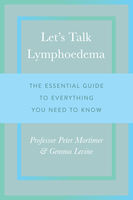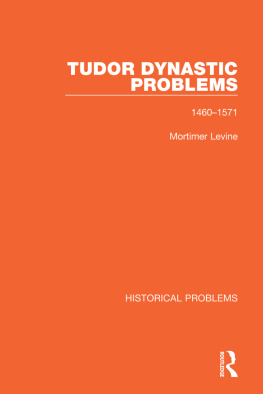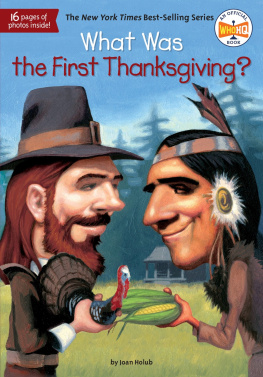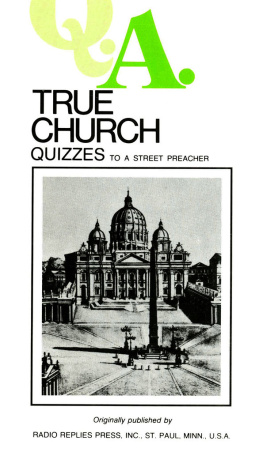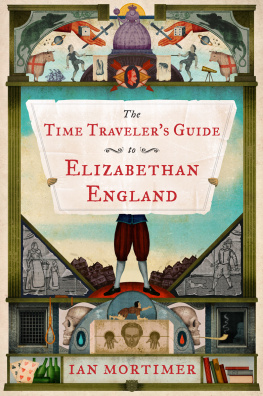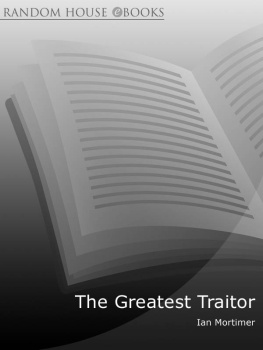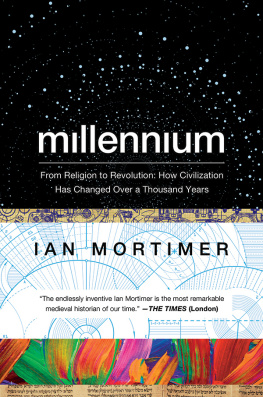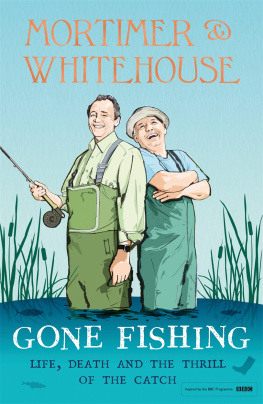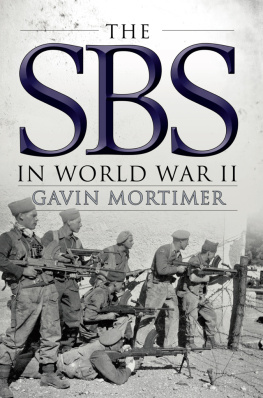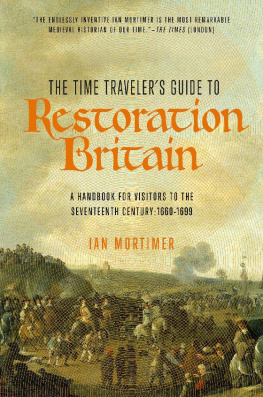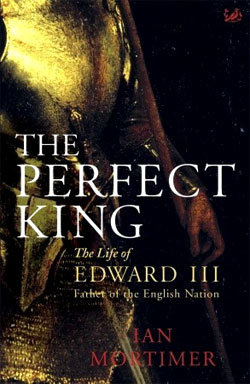Peter Mortimer
BROKE THROUGH BRITAIN
One Mans Penniless Odyssey
BROKE THROUGH BRITAIN
Peter Mortimer is a poet, playwright and editor. Bom in Nottingham, he has been resident since 1975 in the windblown north-east coastal village of Cullercoats, where he protects his battered Remington typewriter against the ravages of modern technology. He has written 15 plays, for most of the regions main adult and childrens theatre companies and for BBC Radio 4, and has also published various poetry books for both adults and children. For several years he was the regions drama critic for The Guardian and he is the founder/editor of IRON Press, which since 1973 has published an active list of new poetry, fiction and drama. His only precedent for such an incautious foray as Broke through Britain was in 1987, when he wrote the book The Last of the Hunters after spending sue months at sea working with North Shields fishermen.
Peter Mortimer also works regularly as a Writer in Schools in a vainglorious attempt to subvert the education system.
BROKE THROUGH BRITAIN One Mans Penniless Odyssey
Peter Mortimer
M AINSTREA M
PUBLISHING
EDINBURGH AND LONDON
Copyright Peter Mortimer, 1999 All rights reserved
The moral right of the author has been asserted
First published in Great Britain in 1999 by MAINSTREAM PUBUSHING COMPANY (EDINBURGH) LTD 7 Albany Street Edinburgh EH I 3UG
Reprinted 1999. 2000
ISBN 1 84018 163 X
No pan of this book may be reproduced or transmitted in any form or by any means without written permission from the publisher, except by a reviewer who wishes to quote brief passages in connection with a review written for insertion in a magazine, newspaper or broadcast
A catalogue record for this book is available from the British Library Typeset in Garamond
Printed and bound in Finland by WS Bookwell
For Kitty who always keeps me going
Acknowledgements
Firstly, Id like to thank the many dozens of people who were willing to feed and house me during my odyssey. Without their trusting nature it would have been impossible. I must also thank Sarah Davidson for trusting Sam into my keeping.
To write the books final draft, I locked myself away in retreat. Id like to thank Vera OHagan and Allan at the Old School House Creative Writing Centre, Halrwhistle, Northumberland, for the huge meals, moral support and fantastic setting, and also, for the last laps, Angela Wright, who readily made available to me her house in Duke Street, Whitley Bay, over a two-week period.
I must also thank my agent, Tina Betts, of Andrew Mann Ltd, for supporting the idea when it was just a mad gleam in the authors eye.
Id like to thank Homer too. His epic Odyssey gave me support on my more humble version ...
Preface
When preparing for my penniless odyssey, I came across an Indian custom of going on pilgrimage at the age of 50. How would Western society handle such a thing? I imagined the multinationals patting their employees on the head, come their half-century, with the words, Off you go, then, a pilgrimage on full salary, and we do hope you return spiritually enriched. Maybe not.
Luckily Im not the wage slave of a multinational, so when the idea first came to me in those small hours of the morning that cheat you of sleep, the main obstacle in my way was common sense. How would an individual fare, travelling through our country, denied the facilities we take for granted: food, shelter, money? Would he or she survive in a nation which often shows a soured face to the world? Unrestricted generosity and open-handed charity do not immediately spring to mind as attributes of modern Britain.
Other cultures accept the wanderer. Monks walk penniless with their wooden bowls in several Eastern societies. They do not starve. And the monks in turn offer sanctuary to the traveller. This seems a good arrangement, and one that doesnt depend on a huge gross national product. Yet, as Orwell pointed out in his essays, in our country tramps are usually treated as scroungers, despite the fact that their way of life is infinitely harder than most, and one which many so-called honest and decent members of society would be unable to survive.
There is a certain degree of romanticism about life on the road. Its fed by countless US movies, Jack Kerouac books, that deep sense of unrooted freedom in all of us, a casting off of dull responsibility and duty. Is there any romance to its reality?
Id done a fair share of travelling and written a good many travel articles. Bat never a travel book, and never without the security of a wallet. Despite poverty in Britain, shelter and food are - happily - something most of us dont have to battle for daily. Hunger is a temporary state, relieved if need be by a Twix or a Mars bar until the next meal comes along. Most of us need never wonder where we will sleep that particular night. What would be the effect of removing such luxuries, and at the same time having to travel long distances? The thought both fascinated and appalled me, and put me in mind of what a playwright friend, Rod Wooden, once said: Write about something you fear.
Once the idea took root, it nagged at me like a toothache. What would the journey be? Lands End to John OGroats? Too predictable. And too far. I decided 500 miles seemed a good distance. A check on the map showed Plymouth to Edinburgh would fit the bill. Many pilgrimages had started at Plymouth. And I would be journeying between the most southerly cities of both England and Scodand.
What next? I phoned a Buddhist friend, Yann Lovelock, whod spent some time with a begging bowl on the streets of Birmingham. He advised me to visit my local Buddhist monastery, Harnham Vihara, only 30 miles from me in Northumberland.
Harnham is a small monastery (six monks, two novices) housed in former farm buildings perched on a hilltop. Some of the monks had experience of wandering penniless, and as I sat and ate a strange combination of Thai spicy food and arctic roll, the monks Punnjo and Suvaco talked to me. You will find it very hard, said Suvaco, but eventually you will gain strength. It will be part of your journey through life, so you must. There was practical advice, too: carry a torch and brolly; take some moleskins (padded foot protection).
The monks also lent me two important books. No Destination is the extraordinary autobiography of Satish Kumar, who, inspired by Bertrand Russell, undertook an 8,000-mile peace pilgrimage on foot from his native India to America. He walked through deserts and over mountains, crossed Russia in the winter, and was thrown into jail. He carried no money, but delivered packets of peace tea to world leaders. Kumar also undertook a British pilgrimage, walking to this countrys holy places such as Glastonbury, Lindisfarne and Canterbury. He now lives in Devon. The other book, Peace Pilgrim, is the story of the American woman (known only by the book title) who, over three decades, walked more than 25,000 miles, penniless, through the USA and Canada in the name of world peace, her name emblazoned across her T-shirt. She walked into her seventies, fired by her beliefs. She would walk until offered shelter, fast till she was offered food. Sometimes she walked through the night. Compared to these two remarkable people, my odyssey began to take on the dimensions of a Sunday stroll.
Kumar wrote, Walking in itself was an end, a form of meditation, a way of being. The outer journey became the inner journey. There would be an important difference with my journey. They walked with a definite mission: high-profile peace pilgrimages. The writing came later. My own walk would have no definite mission, and I would be fired by the doubts most writers feel. My journey would be specifically as a writer. I would not expea people to throw open their doors for me. Who would know me?
Next page

